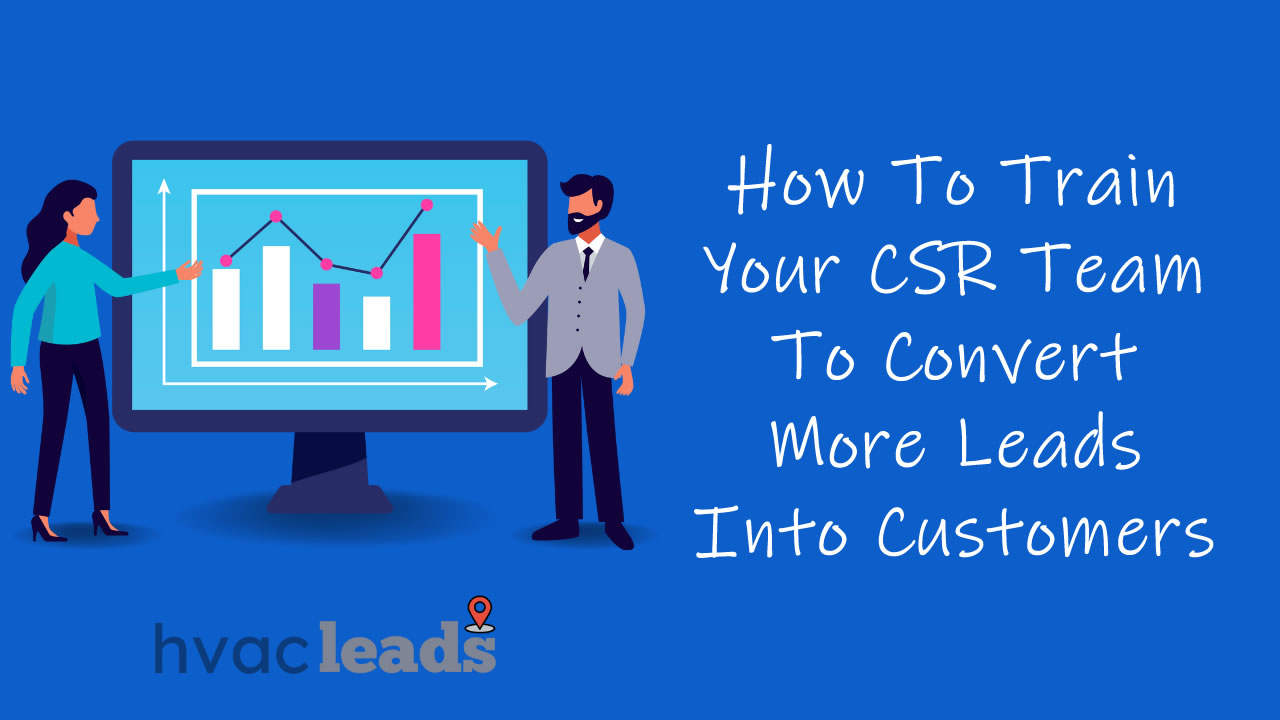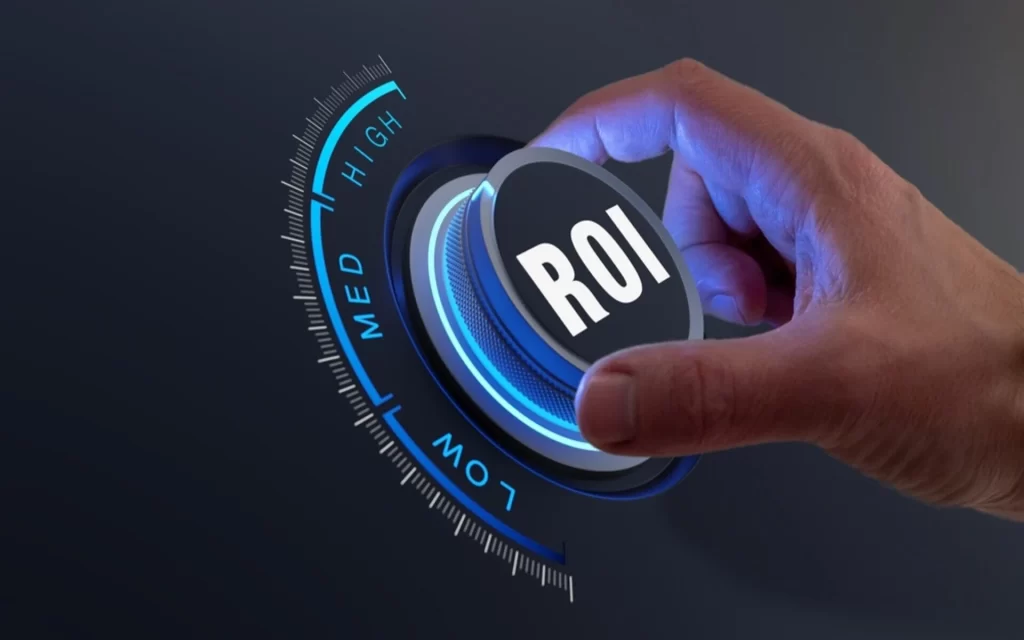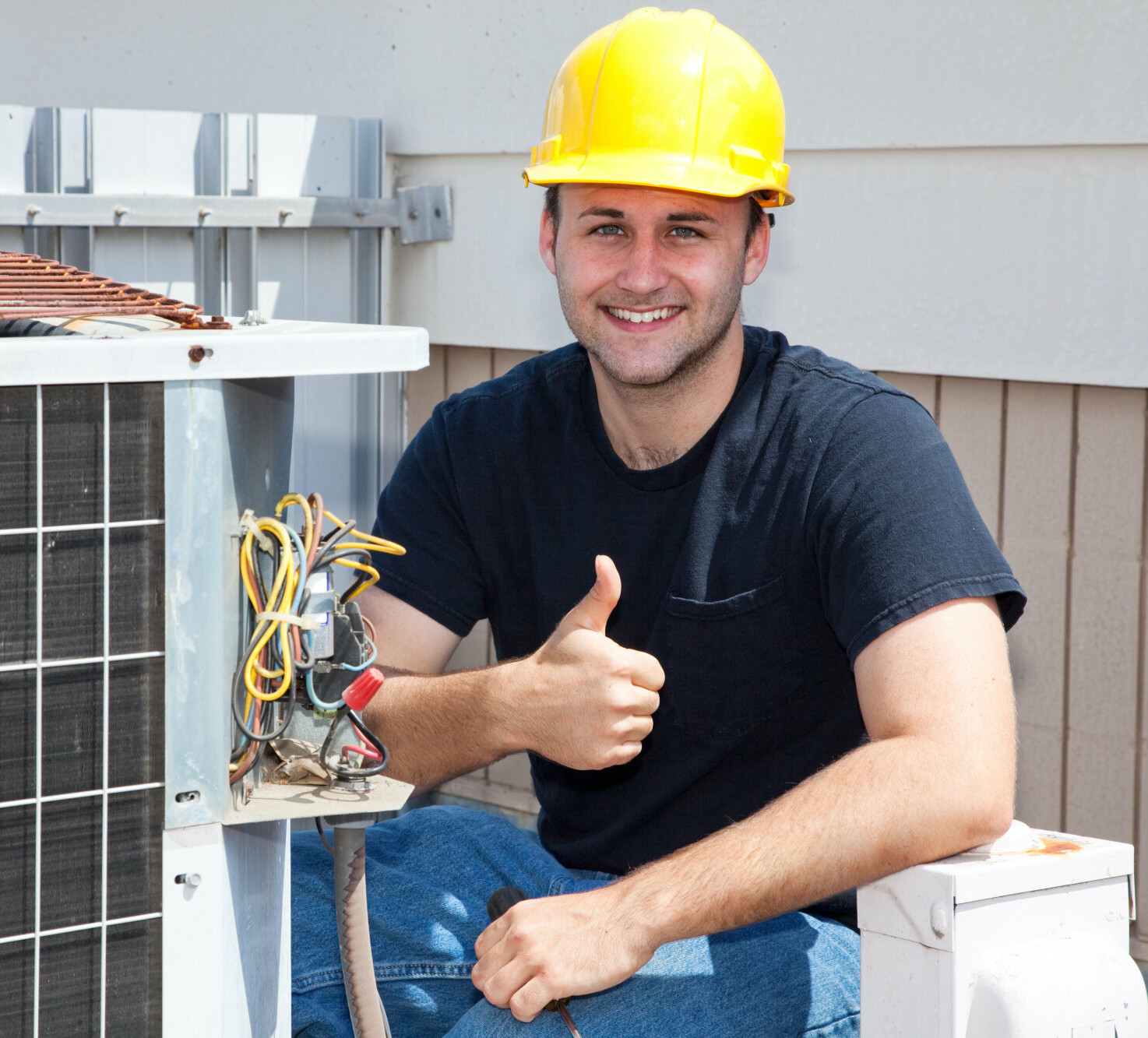
Given the escalating costs of advertising and lead generation within the HVAC industry converting leads into paying customers isn’t just about generating inquiries—it’s about the human touch that turns those inquiries into loyal clients. Your Customer Service Representatives (CSRs) play a pivotal role in this process. With the right training, your CSR team can become an unstoppable force, ensuring no lead falls through the cracks. Here’s how you can train your team to convert more HVAC leads into customers.
Why Your CSR Team Is Critical to Lead Conversion
CSRs are the first point of contact for many potential customers. Their communication skills, product knowledge, and ability to build rapport directly impact whether a lead chooses your HVAC services over a competitor. A well-trained CSR team can:
- Build trust with potential customers.
- Effectively address objections.
- Guide leads through the decision-making process.
- Increase your overall conversion rate.
Step 1: Equip Your Team with Industry Knowledge
To convert leads effectively, your CSRs need to be well-versed in the HVAC industry. Provide comprehensive training on:
- HVAC Systems and Services: Ensure they understand the basics of heating, cooling, ventilation, and maintenance services.
- Seasonal Needs: Train them to address seasonal pain points, such as summer cooling emergencies or winter heating tune-ups.
- Common Customer Questions: Prepare them with answers to frequently asked questions, like “How much will this cost?” or “How soon can someone come out?”
Knowledge breeds confidence, and confident CSRs inspire trust in customers. With the emergence of AI agents it’s now easier than ever to provide technical, product and sales information for your CSR teams.
Step 2: Develop Strong Communication Skills
Effective communication is at the heart of lead conversion. Train your team to:
- Listen Actively: Teach them to identify customer pain points by asking open-ended questions and listening attentively.
- Use Positive Language: Encourage phrases like “I’d be happy to help” instead of “I don’t know.”
- Mirror the Customer’s Tone: If the customer is formal, they should match that tone. If casual, they should keep it friendly.
- Handle Objections Gracefully: Role-play scenarios where customers raise concerns about pricing, timing, or trust.
Step 3: Implement a Proven Call Handling Process
Streamlining how CSRs handle calls can make all the difference. Create a structured process that includes:
- Greeting the Caller: Use a warm, friendly tone and introduce themselves by name.
- Understanding the Need: Ask questions to identify the customer’s problem and urgency.
- Presenting the Solution: Explain how your HVAC services can address their needs.
- Closing the Appointment: Confirm details like service date, time, and contact information.
- Follow-Up: Ensure leads are contacted promptly if further information is needed.
Consistency ensures every lead receives the same high-quality experience.
Step 4: Leverage Technology to Support Your Team
The right tools can empower your CSRs to excel. Consider investing in:
- Customer Relationship Management (CRM) Software: Use CRM tools to track leads, manage follow-ups, and ensure no lead is forgotten.
- Call Recording and Analysis: Regularly review calls to identify strengths and areas for improvement.
- Scripts and Templates: Provide guidelines for common scenarios while allowing room for personalization.
- AI agents: AI agents, online booking and chatbots can streamline time consuming tasks.
Technology streamlines workflows, reduces errors, and ensures a professional experience.
Step 5: Foster a Customer-Centric Mindset
Your CSRs should view themselves as problem solvers, not just appointment setters. Foster a mindset focused on:
- Empathy: Teach them to put themselves in the customer’s shoes and respond with understanding.
- Proactivity: Encourage them to anticipate customer needs and offer solutions before being asked.
- Ownership: Instill a sense of responsibility for ensuring each lead has a positive experience.
Step 6: Provide Ongoing Training and Feedback
Training shouldn’t be a one-time event. Schedule regular sessions to:
- Update Industry Knowledge: Keep them informed about new HVAC technologies or services.
- Practice Role-Playing: Simulate real-life scenarios to refine their skills.
- Review Performance Metrics: Use data from your CRM system to identify areas for improvement.
- Celebrate Successes: Recognize top performers to boost morale and motivate the team.
Step 7: Align Your CSRs with Marketing Efforts
Your CSR team and marketing department should work hand in hand. Share insights on:
- Lead Quality: Provide feedback on the types of leads coming from marketing campaigns.
- Customer Pain Points: Highlight recurring concerns to refine messaging.
- Special Offers or Promotions: Ensure CSRs are equipped to communicate current deals effectively.
Collaboration ensures a seamless experience from lead generation to conversion.
Metrics to Track CSR Performance
To measure the success of your CSR training efforts, monitor key performance indicators (KPIs), such as:
- Conversion Rate: Percentage of leads converted into appointments or sales.
- Average Handling Time: Time spent on each call.
- First-Call Resolution Rate: Percentage of issues resolved on the first interaction.
- Customer Satisfaction Score (CSAT): Feedback from customers about their experience.
Regularly reviewing these metrics helps you fine-tune your approach.
Case Study: The Financial Impact of CSR Training
Consider this scenario: An HVAC company was spending $10,000 per month on lead generation but struggled with a 20% conversion rate. After implementing structured CSR training, introducing a CRM system, and focusing on customer-centric communication, the company achieved the following results:
- Conversion Rate Improvement: The conversion rate increased from 20% to 45%, resulting in 50 additional customers per month.
- Revenue Growth: With an average ticket value of $500 per service, this resulted in an additional $25,000 in monthly revenue.
- Lead Spend Optimization: By converting more leads, the company effectively reduced the cost per conversion from $500 to $222, saving $278 per converted lead.
- Profit Margin Increase: The improved efficiency and higher revenue contributed to a 15% boost in profit margins.
Moreover, the company incentivized its CSR team by tying bonuses to KPIs such as conversion rates and customer satisfaction scores. This not only motivated the team but also fostered a culture of accountability and continuous improvement.
The key takeaway? Every lead that isn’t converted represents a missed opportunity to grow revenue and improve profit margins. Investing in your CSR team’s training ensures you maximize the value of every lead and set your business up for sustainable success.
Conclusion
Your CSR team is the frontline of your HVAC business, and their ability to convert leads into customers can make or break your bottom line. By equipping them with the right knowledge, tools, and mindset, you can turn every interaction into an opportunity to build trust, resolve issues, and secure long-term clients. Start training your CSR team today, and watch your lead conversion rates soar.


